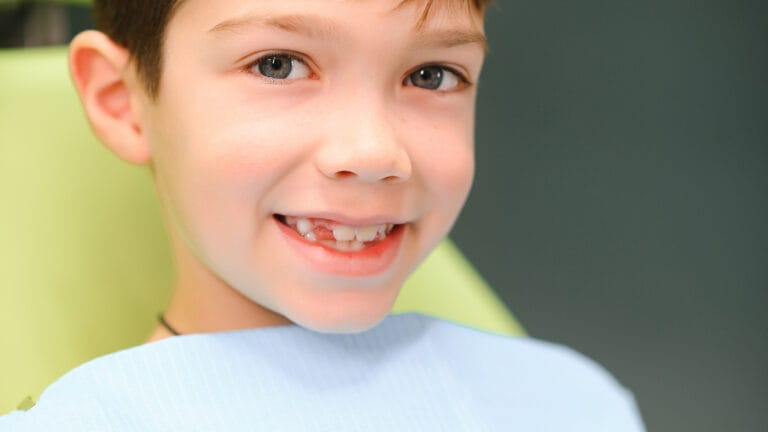Bringing your baby home is an exciting, life-changing experience full of beautiful moments and endless surprises. Seemingly overnight they will change from a newborn to a fully-fledged person with a personality and ideas of their own. No two children are the same and the way your baby develops will be unique to them. That said, at each age there are certain developmental milestone that each child should achieve.
Most of those developmental stages of children will come fast and furious in the early months and years before slowing down (but becoming more complex) as your child grows. No one can provide you with a perfect roadmap of what to expect, but these child development stages by age should help.
Development from Birth to 2 Years
2 Months
Those first couple of months, your baby is likely to do little more than eat, sleep, fill diapers, and cry. Being an infant is hard work! By about two months, however, you should start to see inklings of new behaviors and talents, including:
- Looking at your face when you speak to them (paying attention to people and objects)
- Smiling when spoken to or smiled at
- Making some sounds other than crying
- Reacting to loud noises
- Moving both arms and legs, opening hands briefly
- Calming down when spoken to or picked up
4 Months
Those early milestones may not seem like much, but they build a foundation upon which your baby continues to develop and becomes more social. By four months old, your baby should exhibit these behaviors:
- Smiles on their own, giggling or chuckling (not a full laugh)
- Tries to capture or keep your attention by moving or making sounds
- Starts “cooing” (ooh and aah sounds) and responds vocally when spoken to
- Turns toward voices and other sounds
- Opens mouth when hungry and sees food
- Starts pushing up on elbows when on their stomach
- Holds some toys and other objects
6 Months
At six months, your baby will have entered their early development stages and start learning things quickly. Learning strategies and reactions to new situations could exhibit in a number of ways, including:
- Exploring objects by putting them in the mouth
- Reaching for things they want
- Closing mouth when no longer hungry
- Rolling from stomach to back or vice versa and pressing up on arms
- Recognizing familiar faces, including their own face in the mirror
- Vocalizing things in new ways including laughing, raspberries, cooing, and squealing
9 Months
Closing in on the end of the first year, you should start to notice your baby incorporating knowledge and responding to the world in new ways. While most of these changes will be fun and exciting, you may start to notice some of your baby’s first complex negative emotions. That’s because your baby now has some expectations about the world and might be unhappy when those expectations aren’t met. Social development in infancy 0-2 years is evident as your baby begins to show:
- Resistance to strangers, exhibited by fear or sadness in their presence
- Increased control of facial expressions
- Improved vocalizations including “babbling” (“mamama,” “bababa,” etc.)
- Banging two objects together
- Sitting up by themselves
- Manipulating food and other objects with hands
- Lifting arms to be picked up
12 months – 18 Months
By one year old, your baby is entering the toddler stages of development and you’ll really start to see their personality shine through. In addition to increased physical control, your baby will also start to understand and react to more abstract concepts.
- Waves bye when they or someone else is leaving
- Has vocalized names (non-specific) for parents or caregivers
- Understands the word and concept of “no”
- Looks for things when missing (if a toy falls or is moved)
- Pulls themselves up to stand and walk with support (holding furniture)
- Manipulates objects with thumb and forefinger
- Copies behavior of other kids
- Claps when happy or excited
- Shows physical affection (hugs and kisses with loved ones)
- Says one or two additional words
- Understands and looks at objects you name, even if they can’t name them
18 Months – 2 Years
The last six months leading up to your baby’s second birthday are filled with all kinds of exciting social, emotional, physical, and cognitive milestones. During this period, your child will really begin to come into their own and meet the world with more independence as they progress through stages of child development 0-19.
- Explores independently by moving away while keeping an eye on you
- Increased vocabulary – should have command of a handful of words in addition to caregiver names (about 10 words by 18 months, 50+ words by age 2)
- Follows one-step instructions like, “Hand me that toy, please.”
- Walks without support
- Scribbles with crayons or pencils and attempts to use spoons and other utensils
- Recognizes emotional cues of others (shows and expresses sadness when others are hurt or sad)
- Begins sticking two or more words together into complex concepts (things like, “More drink.”)
- Multitasks with something in one hand while using the other hand
Stages of Child Development 2 – 9 Years
2 – 3 Years
Often called the “terrible twos,” this time in your child’s life is far from terrible. In fact, you’re going to see a wide range of new abilities, talents, and interests. Moreover, at this stage, your toddler will love to share those interests, abilities, and talents with you as they further explore the childhood development stages.
- Enjoys sharing interests and abilities with an audience such as “Look at me.” or “Look at this.”
- Follows more complex instructions like “Let’s clean up.”
- Uses an increased vocabulary of up to 50 words including the use of pronouns like “I,” “me,” and “we”
- Solves problems using simple tools — like a stool, to reach a higher place
- Improved fine motor skills (can turn the page of a book while being read to)
- Joins peers in playtime
- Holds simple conversations (a few back-and-forth exchanges)
- Asks who, what, and why questions (so many why questions!)
- States their name and speaks well enough to be understood most of the time
- Expresses large emotions when left in unfamiliar places (like daycare) but should calm down within 10 minutes of transition
4 – 5 Years
Between ages 4 and 5 your baby will exit their toddler phase and become a full-grown “kid.” All of those new abilities, the laughter, and the misspoken words, come together in magical ways as they progress through stages of childhood.
- Plays make-believe (pretends to be something other than themselves)
- Comforts others when hurt or sad
- Recognizes and avoids danger (hot stoves, heights)
- Begins to recognize rules of different spaces (home vs. the library or the store)
- Crafts sentences with four or more words
- Recites pieces of songs or nursery rhymes
- Answers simple questions like, “What did you do today?”
- Holds writing utensil in fingers, not fist
- Does simple chores like clearing their plate
- Retells a story they heard or made up
- Understands and references time (talks about yesterday, tomorrow, morning, or night)
- Writes some letters and names some letters when pointed at
6 – 7 Years
By age 6 or 7, your child has moved out of the baby and toddler stages and firmly into childhood. While language continues to develop, most of the changes you’re likely to see have to do with higher learning and special interests. Your 6 or 7 year old typically:
- Practices things they like doing to get better
- Learns to ride a bike and/or tie shoelaces
- Does simple math like addition and subtraction
- Improves their reading and writing skills
- Paints, draws, or creates other visual art
- Differentiates between left and right
- Learns to tell time
8 – 9 Years
At this point, all bets are off. By 8 or 9 years old, kids have fully become individuals with a diverse set of interests, talents, and challenges. Predicting the things they’ll do, learn, and say becomes increasingly difficult but you should see movement towards:
- Jumping, skipping, and running effectively
- Dressing and grooming themselves fully and independently
- Using simple tools like a hammer or screwdriver
- Learning more complex math like fractions
- Reading, writing, and artistic skills improved.
Every kid is unique and will greet the world in their own way. These stages of childhood development should serve only as guidance as your child grows and develops. Some children meet developmental milestones earlier than expected and that’s perfectly okay. At each well-child visit, your child’s doctor can provide guidance including age-specific take-home materials and answer any questions you may have.
It takes a village to raise a child and the collective efforts of family, friends, and the community play a crucial role in supporting the next generation as they grow and develop throughout the different stages of childhood. If you’re concerned your child is not meeting developmental stages as you expect they should, discuss it with your pediatric provider here at Families First Pediatrics. They can connect you with important resources, if needed, to help your child become the best version of themselves they can be.
Struggling with breastfeeding?
Overcome common nursing challenges and make feeding time rewarding for you and your baby by meeting with one of our friendly, experienced, IBCLC-certified lactation consultants.
Reminder: Most health insurance companies require adding your new child within 30 days of birth. Make a note to add your baby to your policy within this window to ensure all their visits are covered.







